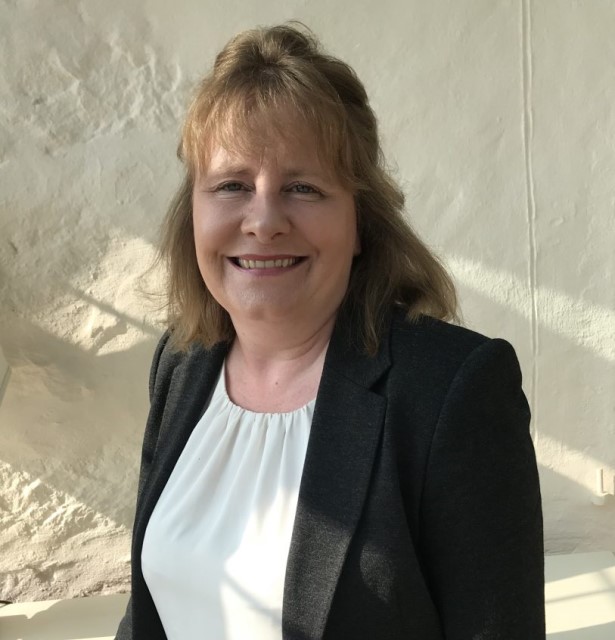Call for ‘radical’ compulsory purchase and taxation changes to sort Highlands and Islands housing crisis

Ailsa Raeburn
Changes to compulsory purchase rules and a new National Housing Agency should be considered to address the crisis in Highlands and Islands housing, according to a senior leader of Scotland’s land reform movement.
Community Land Scotland chair Ailsa Raeburn suggests a significant overhaul of taxation and compulsory purchase powers should be looked at as key weapons to tackle the rural housing crisis.
Delivering this year’s prestigious Attwood Lecture at UHI Inverness, Raeburn insisted landowners, communities, construction companies, and planning authorities, should all be incentivised to build properties, and the Scottish Government needs to urgently address ineffective systems that delay housing development.
Ailsa Raeburn, who also sits on the boards of Highlands and Islands Enterprise and Crown Estate Scotland, said: “We have businesses, local and global, wanting to invest and grow in the Highlands and Islands. We have a beautiful place to live with a great quality of life. We have more and more of our own young people wanting to build their lives here.
“So what’s the problem? It’s housing. Communities across the Highlands and Islands are desperate to retain and attract young and working-age people, but it’s becoming more and more difficult because of lack of affordable housing.”
A ‘carrot and stick’ approach
Ms Raeburn said it was time to consider how changes to taxation and compulsory purchase rules could help the housing situation.
“How much are changes to taxation and compulsory purchase part of the mix too? A carrot and stick approach. There is a review of compulsory purchase legislation ongoing, but everyone would acknowledge it is a cumbersome and burdensome process with very high risk of challenge.
“We can only hope that the review manages to address these issues and enable more sites to come forward for development.”
And she called for reform of the Land and Buildings Transaction Tax, and council tax multipliers on second homes, to be considered to reduce the impact of second homes and short-term lets.
A new National Housing Agency
With the availability of homes now at crisis level, Raeburn called for a new National Housing Agency to be considered that could coordinate and drive a fair housing development policy for Scotland. She quoted examples from around the UK and Europe where such projects have been long established.
While Raeburn conceded there are risks such a body could be distanced from communities, she felt it would be important to consider an agency - independent of government - to minimise political interference, but designed to deliver overarching Scottish government housing policy.
The National Housing Agency could acquire land on a temporary basis, supply infrastructure, secure planning and other consents, and make sites available for development, with sales at open market value.
“What has become clear is that doing more of the same will not lead to a different outcome. Really significant strategic thinking is required as part of a wider investment plan for the regeneration of the region and the mobilisation of all parties to the same goal,” she added.
Multiple barriers to progress
Raeburn highlighted a number of factors that are blocking progress in housing and that need urgent reform.
“The barriers include access to land, construction capacity, the cost/ value ratio, loss of existing homes to short-term lets and second homes, issues with planning policy and delivery, and deficiencies in Scottish Government policy making.”
Construction costs have escalated – an average housing unit rose from £157k in 2019 to £227k in 2024 – and the building industry faces huge problems getting and retaining staff.
Raeburn also highlighted the problem of ‘NIMBYISM’. She said: “NIMBYISM can be a problem in certain communities – when people fail to recognise the need for new homes to keep communities sustainable and protect local services and businesses. They want to pull up the drawbridge behind them.”
Land reform essential
Raeburn called for radical change to land ownership and management highlighting how land control in Scotland has become more concentrated in recent years. 433 individuals and companies own 50% of private land. Landholdings are getting larger.
Some private landowners, Raeburn said, prioritise their commercial interests over community sustainability, often having almost monopoly control of land that could be used for housing.
“A perfect example is Applecross. Despite the local estate owning 26,000 ha of land surrounding several local settlements, it was impossible to secure any land for housing. In the end the community managed to buy less than 1 acre of land at the road junction in the village from the NHS to develop for houses.
“On Colonsay, the community took almost a decade to secure land from the island landowner. This meant that the eventual scheme took many, many years to develop during a period when the population of Colonsay declined dramatically, and all key services were at risk.”
She said the Land Reform Bill currently going through the Scottish Parliament includes some positive measures.
“The Bill as it stands is not perfect and it needs significant strengthening if we are to begin to effectively address some of these issues around monopoly ownership and community sustainability.
“However, it is a commitment to moving the land debate forward and ensuring that Scotland’s most precious resource, it’s land, is better used in the public interest. And is released to help respond to some of the most pressing crises in Scotland today.”
The problem of short-term lets and second homes demanded tighter controls, including community involvement in decisions, said Raeburn.
“As a salutary lesson, for the community at Ulva Ferry on Mull, it took about four years to deliver a small development of four houses. These were to be managed by the local community organisation and let for affordable housing with a stated aim of attracting young families to keep the local school open.
“During that period of time when four new houses were delivered, four local houses were sold and turned into short-term lets. It’s absolutely impossible to build new homes at the rate houses are being lost. Control on numbers is therefore absolutely critical.”







